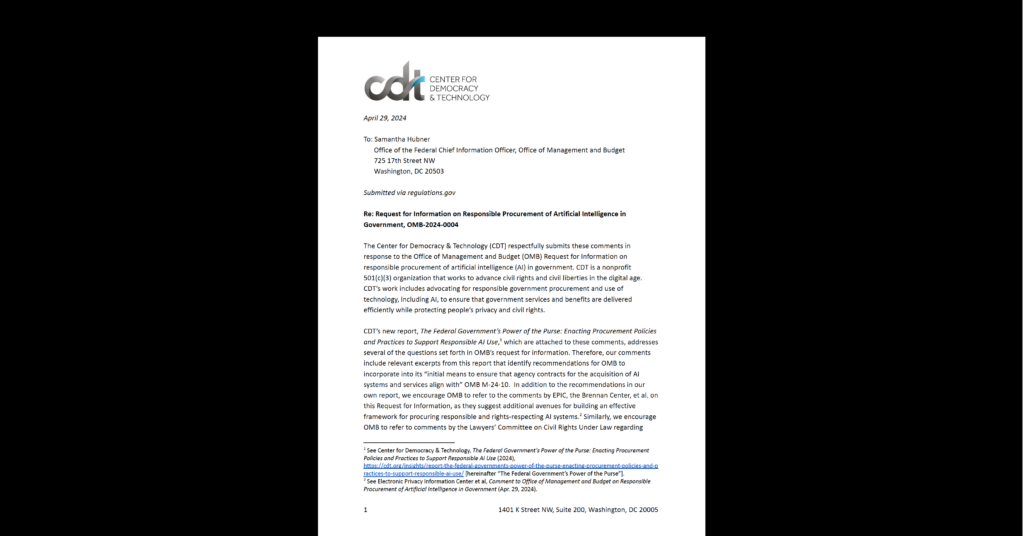Principles for the Anti-Counterfeiting Trade Agreement (ACTA)
In response to the February 15, 2008 request for comments published in the Federal Register, the undersigned entities submit the following principles that should guide the U.S. delegation in negotiating the Anti-Counterfeiting Trade Agreement (ACTA).
- ACTA should focus on the facilitation of legal action against those entities and individuals that intentionally engage in counterfeiting and intellectual property infringement on a commercial scale for commercial purposes. ACTA should not target innocent intermediaries such as shippers, payments systems, search engines, online marketplaces, and Internet access providers that are used by those counterfeiters and infringers. Nor should ACTA target activities that fall within exceptions to exclusive intellectual property rights.
- While the elimination of counterfeiting and commercial infringement certainly is a very important objective, ACTA must ensure that the pursuit of counterfeit and infringing products does not unduly burden legitimate commerce, impede innovation, undermine consumer privacy, or restrict the free flow of information.
- ACTA should concentrate on measures relating to enforcement of intellectual property rights, not on substantive issues of intellectual property such as the scope of protection, limitations and exceptions, and secondary liability.
- ACTA should not serve as a vehicle for changing U.S. domestic law relating to intellectual property enforcement.
- ACTA should be technologically neutral and not create disparate burdens or obligations depending on whether a counterfeit product is sold online or offline. Similarly, ACTA should not encourage the imposition of technology mandates, such as the mandatory filtering of Internet traffic.
The Fact Sheet on ACTA distributed by the Office of the U.S. Trade Representative references provisions that may appear in ACTA. The following comments address some of those proposed provisions.
- Public/private advisory groups. Any advisory groups formed pursuant to ACTA must represent the broad spectrum of interests, including rightsholders, intermediaries, and consumers.
- Consumer Public Awareness. Public education campaigns must present a balanced and accurate view of intellectual property. Consumers should learn not only about exclusive rights, but also exceptions and limitations to those rights. If consumers are presented with simplistic and draconian perspectives, they will reject them. ACTA should not mandate a specific role for governments in consumer awareness campaigns, but allow each government flexibility.
- Internet distribution and information technology. As noted above, ACTA should be technologically neutral. While the Internet does pose some unique challenges in terms of identifying, locating, and apprehending perpetrators, it is also far more transparent than other means of distribution and preserves far more evidence that can be used in enforcement proceedings. Furthermore, the harm caused by the distribution of counterfeit and infringing products through the Internet is qualitatively the same as the harm caused by other forms of distribution. Accordingly, special penalties that target the Internet are inappropriate.


